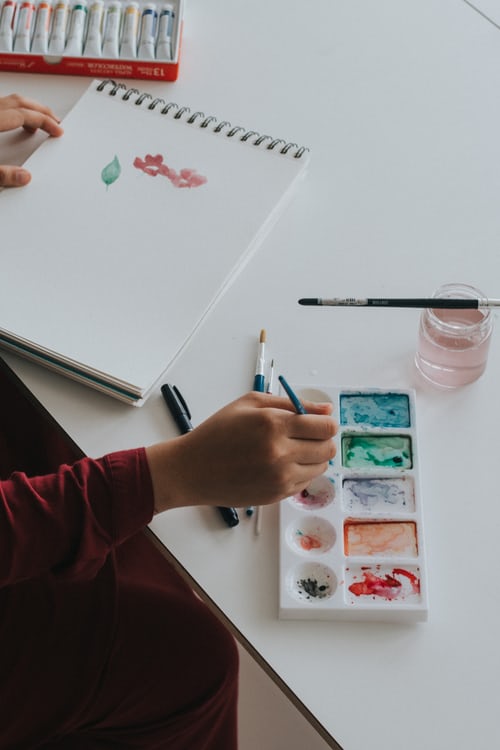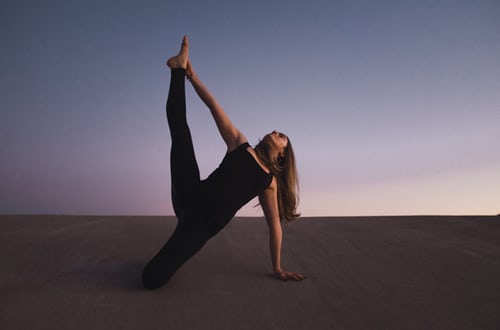Have you ever met anyone who seems to yack and yack and yack and doesn’t let anyone else get a word in edgewise?
Most of the time they’re usually talking about themselves, their activities (or lack thereof), or their problems. They can be exhausting to listen to.
I’ve had some interactions like that, especially with new acquaintances, people I’ve just met or recently met. On a weeklong writing retreat, I spent much of the week listening to one woman’s life story, (which was quite a story), with all of its pitfalls and sadness; although she frequently interjected words of praise to the Lord and joy and how much she liked to write.
On the last day of the retreat, I sat at the dining room table with her, listening to her tell me—and the other seven writers seated at the table—about more gory life history. When it was time to leave, I said goodbye and started to go. She looked at me and said, “Wow. We have to leave already, and I didn’t even get a chance to talk to you and hear your story.”
The first thought that crossed my mind was Of course not. You were too busy telling yours. I’ve been with you for a week, and you never asked.
I’d been in close proximity and boarding in the same house with her for six days, and not once did she ask me about me, or my life.
The heart of the matter—
She may have just been a talker, but—as much as I tired of her droning and was irked by her assessment—and insinuation that I’d withheld information from her—I sensed something else going on.
This woman was either scared or lonely, which meant she talked incessantly to cover her fear; or people never really listened to her. Or she didn’t have enough close friends that really listened and gave her honest feedback.
That’s where so many of us find ourselves these days—scared and unsure of ourselves around others, especially strangers; or just flat out lonely. Plugged into the Internet or television with no real friends to share life with. Covering up our loneliness with busyness and cramming too much activity into a day. Being pressed on all sides by family and work.
And that’s one of the reasons we’ve been covering friendship building on Meditation Monday blogs for the last month.
Our purpose—
God didn’t put us on this orb and allow us to populate it because we’re supposed to live and go it alone. We need to make connections and share life. At the very least, we are to be Jesus-with-skin-on to others.
This post will give you another idea for building friendships.
Connect or reconnect with old friends—
Having a connection to your past through someone else is important. Someone you grew up with, came of age with, slogged through growing angst with.
I think we intuitively know that and that’s one of the reasons so many in their 40s, 50s and 60s (or older) start looking for “old friends or classmates” and try to reconnect or establish a new friendship through a common bond.
Regretfully, high school friendships dropped off the radar for me some time around the birth of my first child. I’d done a pretty good job of maintaining contacts during college and then beyond, but either busy life or inattentiveness caused my connectedness to whither away. Then the same thing happened to college friends, as we moved on, moved away, and started careers and had children.
I’ve begun rectifying that, with a very close high school friend. (I honestly didn’t have too many really close BFFs. I was too busy swinging from uneven bars and being a gym rat to nurture friendships the way I should. And I realize now that I also had too many hang-ups to be a really good friend. It’s one of my biggest regrets.)
I’ve managed to keep in touch with a friend from my freshman year in college, even though she transferred to another college our sophomore year. She lives up the road from me in the north Phoenix area. We mostly communicate via text message, but sometimes it’s a visit, (I flew to Las Vegas to visit her once, drove to Central California from Southern California another time, and enjoyed her guest bedroom after a Phoenix writing retreat on another).
Even when months slip by, she knows I’m only a phone call away; and we’ve prayed each other through some pretty rough times. And I recently learned that she and her husband are buying a retirement home just minutes up the road from where we bought our retirement lot.
And I count myself blessed that my beloved and I came of age together in college. As my youngest noted the other day: “You and Dad sure have a lot of good stories together!” We do. I only hope I can remember them in another ten, twenty or thirty years!
Tomorrow—Tuesday, August 13—will mark 36 years of married memories and 40 years of significant other memories.
Maintaining or building a friendship—
Regular conversations, cards, text messages go a long way in maintaining a friendship, or even building a new one.
I’ve recounted the story before about an older woman I’d been doing Bible study with calling me not long after the birth of my youngest, which was a difficult, isolating time due to his prematurity and sensitivity issues. I did not hear the phone ring, so her call went to voice mail. When I listened to it, I broke down in grateful heaving sobs.
“Hi Andrea. It’s Louise. I just wanted to let you know I’ve been thinking about you, and if I didn’t call to let you know, you wouldn’t know that.”
What a simple, beautiful call that was to an exhausted, stressed and overwhelmed parent of a new preemie.
I wasn’t alone. Someone was thinking of me.
And now that I’m feeling a little overwhelmed about my mother’s condition and having 100% responsibility for her, her medical care, and her funds, I’m in need of more phone calls like that—calls of empathy and sympathy, especially from people who have walked through this kind of valley. Ones that know what it’s like to care for an aging, dementia-ridden parent that never treated you all that well to begin with and who still communicates with a barbed-wire tongue and combative, screeching decibels.
As one person told me, after she gave me priceless direction on how to set up in-home medical care for my mother: “I totally get what you’re suffering. Other people who haven’t gone through what you’re going through don’t get it. They never will. And don’t expect them to. Talk to people who understand.”
It was a fluke that I’d even connected with this woman on the phone, the owner of the company I needed to contract with, who only answered the phone because her receptionist was on vacation. She was patient, informative and compassionate. I knew I was talking to a kindred spirit, and that God had placed her in my path to give me some emotional (and eventually physical) relief.
I heaved grateful sobs when I got off the phone with her.
One connection with a kindred spirit.
And I’m considering finding a support group to encourage me on this new season of my life. Hopefully I’ll make another friend. I already have one who’s is undergoing much of the same, and we are supporting one another.
Keep trying—
The goal is to keep trying. Persevere. If one person doesn’t show interest in spite of all of your efforts, then graciously move on and try someone else or another setting. Invite someone out to lunch or over for tea, to try to connect. Usually you’ll know immediately whether or not there’s a potential heart bond.
I’ve come to realize that I can’t just dredge up high school friendships that weren’t there in high school, or pretend some existed or went deeper when they didn’t. I can go to my high school reunion and enjoy conversations without expectations of being asked to join “the group” for outside social events. I can move forward from where I am, at this age, with the needs, weaknesses, goals and gifts I have now.
In this season of my life.
Be realistic—
Don’t spread yourself too thin. Work on maintaining and deepening the precious friendships you do have and focus on the new person or two you’d like to spend more time, or encourage. I’ve noted a couple of people I can tell need someone to come alongside them, as encouragers, so I’m making plans to spend some time with them.
Start with something low key, like grabbing a cup of coffee, going to a movie, inviting someone over for a swim if you have a pool they’d enjoy.
Don’t be too hard on the friends who go for months or maybe longer without getting in touch with you. Extend them grace and the benefit of the doubt. Check in with them via text or a call or email to let them know you’r thinking of them and love them. Yours may be the most uplifting, positive message they’ve heard in a long time. Life and time zip by quickly before people realize it; and life is hard—harder for some than others.
Be creative. As I tell my kids, try to find some common ground and interest you can connect on. You’d be amazed at what blossoms for your efforts!
NEXT WEEK we’ll see what the Blue Zone researchers discovered about the importance of lifelong friendships.
Until then, branch out and try some new things, do your best to connect with an old friend, work on deepening the relationships you already have.
Blessings,
Andrea
 Andrea Arthur Owan is an award-winning inspirational writer, fitness pro and chaplain. She writes and works to help people live their best lives—physically, emotionally, and spiritually.
Andrea Arthur Owan is an award-winning inspirational writer, fitness pro and chaplain. She writes and works to help people live their best lives—physically, emotionally, and spiritually.
Andrea Arthur Owan is an award-winning inspirational writer, fitness pro and chaplain. She writes and works to help people live their best lives—physically, emotionally, and spiritually.




